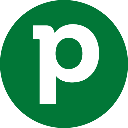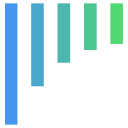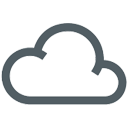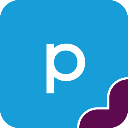Sales CRM: our top 13 online software solutions
In sales management, acquiring a new customer is around 5 times more expensive than investing in retaining existing customers... and this is the principle on which sales CRM is based. 🤔
With a CRM integrated into your sales processes, like the ones we propose in this comparison, you make sure you centralize your customer data and sales follow-up information, you steer your sales actions more effectively and you improve your customer knowledge.
Find out how to manage your CRM project and which online sales management software to choose. 👇
The 13 best CRM software packages
Free, open source, online, cloud-based, SaaS... Your goal is, above all, to have a CRM that's quick and easy to get to grips with, without the need for an overqualified integrator or long, tedious CRM training.
Here is a small selection of the most widely used CRM solutions on the market, listed in alphabetical order.
1 of 9
 Pipedrive |  Microsoft Dynamics 365 |  noCRM |  Oryanoo CRM |  SugarCRM |  Verticalls |  YellowBox CRM |  Youday CRM |  Webmecanik Pipeline - CRM |
|---|---|---|---|---|---|---|---|---|
| For companies with 1 to 5000 employees | For companies with more than 1 employees | For companies with 1 to 250 employees | For companies with more than 1 employees | For companies with more than 1 employees | For all companies | For companies with 2 to 5000 employees | For companies with more than 250 employees | For companies with more than 1 employees |
| See software | See software | See software | See software | See software | See software | See software | See software | See software |
| Learn more about Pipedrive | Learn more about Microsoft Dynamics 365 | Learn more about noCRM | Learn more about Oryanoo CRM | Learn more about SugarCRM | Learn more about Verticalls | Learn more about YellowBox CRM | Learn more about Youday CRM | Learn more about Webmecanik Pipeline - CRM |
Axonaut
Axonaut is a CRM backed up by a modular ERP, so you can manage your entire business with the same software.
Your sales force doesn't like using a CRM? Axonaut will change their minds: this CRM helps them by automating the production of quotes and invoices, as well as reminders. Your sales force will love getting straight to the point with prospecting, customer follow-up and purchasing cycle management.
👍 Benefits
- Easy integration with billing tools.
- Intuitive user interface.
- Simplified prospect and customer follow-up.
- Automates repetitive tasks.
- Reactive customer support.
❌ Disadvantages
- Limited reporting functions.
- Lack of advanced personalization.
EFFICY CRM
EFFICY CRM is the French benchmark for Cloud CRM, with no less than 7 modules to manage all aspects of customer relations: from simple contact management to ERP and marketing automation.
👍 Advantages
- Flexibility and adaptability to specific needs.
- User-friendly interface.
- Centralized contact and opportunity management.
- Automated business processes.
- Good integration with other software tools.
❌ Disadvantages
- Perfectible technical support.
- Limited reporting functionalities.
Microsoft Dynamics 365
Microsoft Dynamics 365 is a solution combining CRM and ERP (Enterprise Resource Planning) in the Cloud. Microsoft Dynamics CRM offers nearly 200 innovative applications.
👍 Benefits
- Native integration with Microsoft products.
- Highly flexible and scalable.
- Advanced reporting and analysis capabilities.
- Sales and marketing automation.
- Modern, intuitive user interface.
❌ Disadvantages
- Relatively high cost.
- Complex initial configuration.

Microsoft Dynamics 365
noCRM.io
noCRM.io is a sales prospecting management application for small and medium-sized businesses. It offers a host of features for centralized, high-performance lead management:
- contact management,
- import of prospecting files,
- integration with your e-mail system, etc.
👍 Advantages
- Easy to use.
- Focus on sales and prospecting.
- Clear, uncluttered interface.
- Integration with third-party tools.
- Good value for money.
❌ Disadvantages
- Limited functionality compared to more comprehensive CRMs.
- Lack of customization options.

noCRM
Oryanoo CRM
Oryanoo CRM is a 100% French solution that offers all the tools you need to manage your customer relations:
- centralized exchanges,
- shared calendars,
- mailing,
- invoicing,
- customer support,
- inventory management, etc.
👍 Benefits
- Complete cloud solution.
- Easy to learn.
- Effective collaboration tools.
- Real-time tracking of customer interactions.
- Business process automation.
❌ Drawbacks
- User interface a little dated.
- Limited customization options.

Oryanoo CRM
Pipedrive
Pipedrive is a sales CRM focused on the performance of sales teams. Designed to offer an intuitive interface and a clear visual pipeline, it enables sales opportunities to be tracked smoothly and efficiently.
With more than 100,000 users worldwide, Pipedrive is particularly well suited to small and medium-sized businesses looking to structure their sales processes without unnecessary complexity.
👍 Benefits
- An intuitive interface + a visual pipeline = rapid take-up and adoption by sales teams!
- Beyond task automation, an AI assistant for every salesperson
- High-performance mobile application (caller ID, automatic call recording, etc.)
- Over 300 integrations (Google Workspace, Microsoft Office, Slack or Trello...)
- Good value for money: from €14/month/user,
❌ Drawbacks
- Limited marketing functionalities.
- Reporting too basic for complex processes.
- No free version.
- Limited customization.

Pipedrive
Salesforce
This commercial CRM capitalizes on the latest technologies in Cloud, Big Data, mobility and social networks. Salesforce Sales Cloud enables efficient management of the entire customer relationship cycle.
👍 Advantages
- Extremely feature-rich.
- Excellent scalability.
- Large community and support.
- Powerful reporting and analysis tools.
- Wide choice of applications and extensions.
❌ Disadvantages
- High learning curve.
- High cost for small businesses.
Sellsy
Sellsy is a complete online sales management tool that allows you to efficiently manage your entire sales cycle:
- marketing,
- prospecting
- invoicing,
- customer follow-up, etc.
👍 Benefits
- Intuitive user interface.
- Efficient sales and customer tracking.
- Integration with billing tools.
- Automation of administrative tasks.
- High-quality customer support.
❌ Disadvantages
- Basic reporting features.
- Lacks some advanced features.
SugarCRM
SugarCRM is an open source CRM developed by the American company of the same name. SugarCRM is a powerful customer relationship management (CRM) software that can be used by small and medium-sized businesses as well as large corporations.
👍 Advantages
- Highly flexible and customizable.
- User-friendly interface.
- Detailed reporting tools.
- Marketing process automation.
- Integration with numerous third-party tools.
❌ Disadvantages
- Steep learning curve.
- High licensing costs.

SugarCRM
Verticalls
Verticalls is the first Microsoft Teams application to analyze your customer meetings in real time, and the only one to offer a written transcript of your sales meetings .
By synchronizing your sales CRM, all your customer data is optimally stored in the platform, so that your sales reps can use it even during meetings!
👍 Benefits
- Integrated videoconferencing tools.
- Customer interaction tracking.
- Modern user interface.
- Sales process automation.
- Integration with collaboration tools.
❌ Disadvantages
- Limited functionality compared to larger CRMs.
- Lack of advanced customization.

Verticalls
YellowBox CRM
YellowBox CRM is a 100% French CRM software offering a high degree of customization. Turnkey and complete, it offers the essential functionalities expected of a CRM, and lets you configure your tool simply and intuitively, activating modules according to your needs.
👍 Advantages
- Intuitive interface.
- Efficient customer tracking tools.
- Automated sales processes.
- Easy integration with other tools.
- Good value for money.
❌ Disadvantages
- Limited reporting functions.
- Lack of advanced features.

YellowBox CRM
Youday CRM
Youday CRM is a simple, effective and highly scalable sales management software. Its excellent level of customization gives you the flexibility to easily upgrade your CRM to a complete sales management software package.
👍 Advantages
- Easy to use.
- Clear, modern interface.
- Automates repetitive tasks.
- Real-time tracking of customer interactions.
- Integration with third-party tools.
❌ Disadvantages
- Limited functionality for large companies.
- Limited customization options.

Youday CRM
Webmecanik Pipeline - CRM
Webmecanik Pipeline - CRM is a free, 100% French tool whose strength lies in optimized management of your sales pipeline, so you can track all your opportunities efficiently. You can organize your schedule clearly, collaborate easily and intuitively, and benefit from a free CRM with no time limit!
👍 Benefits
- Modern, intuitive user interface.
- Lead and customer tracking tools.
- Marketing campaign automation.
- Integration with project management tools.
- Good value for money.
❌ Disadvantages
- Basic reporting features.
- Lacks some advanced features.

Webmecanik Pipeline - CRM
How to choose your sales CRM? Comparison table and our advice
Choosing the right sales CRM is a strategic step in structuring your prospecting, improving your customer follow-up and boosting your sales. To help you compare solutions, here's a summary table of the main tools presented in this article, followed by practical advice for making the right choice according to your needs. ✅
| Software name | Who is it for? | Main benefit | Entry price |
|---|---|---|---|
| Axonaut | Small businesses, executives | All-in-one solution (CRM, invoicing, HR) | 69.99/month (1 user included) |
| EFFICY CRM | SMEs, large corporations | Modular, customizable CRM | From €25/user/month for Tribe by Efficy |
| Microsoft Dynamics 365 | SMB, large enterprises | Native integration with the Microsoft ecosystem | On request |
| noCRM.io | Self-employed, small businesses, sales teams | Focus on prospecting and lead management | From €22/user/month |
| Oryanoo CRM | SMEs, industrial companies | Complete French CRM with sales management | 30 €/user/month |
| Pipedrive | SMEs, sales teams | Intuitive interface with visual pipeline | From €14/user/month |
| Salesforce | SMBs, large enterprises | Market-leading CRM with rich ecosystem | From €25/user/month |
| Sellsy | SMBs, startups | French CRM with billing and marketing | 29 €/user/month |
| SugarCRM | SMEs, international companies | Modular CRM with AI and automation | 59 €/user/month (min. 10 users) |
| Verticalls | SMB, sales teams | CRM with videoconferencing integration | Price on request |
| Webmecanik Pipeline | VSE/SME | Free CRM with essential features | Free plan, then from €20/month/user |
| YellowBox CRM | SMB | French CRM with advanced reporting | Price on request |
| Youday CRM | SMEs, growing companies | Customizable no-code CRM | From €15/user/month |
👉 O ur tips for choosing the right sales CRM :
- Identify your specific needs: prospecting, sales management, reporting, integrations, etc. Not all companies have the same needs, and not all software has the same strengths! So start with your needs and find a tool that ticks as many boxes as possible in your specifications.
- Next, consider the size of your business. Some solutions are better suited to very small businesses, others to large organizations. The features available and the ease of use of the tool will depend on this.
- Ease of use: an intuitive interface encourages your teams to adopt it. And nobody wants to buy software that won't be used!
- Check available integrations: make sure the CRM can connect to your existing tools (email, ERP, etc.).
- Analyze the quality/price ratio: compare the features offered with the cost.
- And finally, test before you commit! Take advantage of free trial versions to evaluate CRM in real-life conditions.
FAQ - Frequently asked questions
What is a commercial CRM?
CRM, also known as Customer Relationship Management, stands for Gestion de la Relation Client, sometimes abbreviated to GRC. Among business management tools, a CRM solution is first and foremost an analytical and decision-making tool.
With a CRM, your sales team can better understand, anticipate and manage the needs and expectations of current and potential customers. The objective? Amplify your sales force and increase the ROI of your marketing and emailing campaigns. 🎯
What is the role of a CRM?
In business, SME and VSE management, commercial CRM essentially addresses three issues:
- #1. Improving performance and reducing costs: optimizing sales management expenditure through better targeting and automation of all sales activity.
- #2. Multi-channel integration: centralize customer data across all contact management media: customer service, sales outlets, sales reps, catalogs, teleprospecting, direct mail, social networks...
- #3. Optimize customer loyalty and satisfaction : increase the level of customer management and build a genuine customer relationship management system based on personalized product and service offers.
How can CRM be used in business?
There are many examples of how sales and customer relationship management software can be used, but the main 3 applications are as follows:
- #1. Teleprospecting : with sales prospecting software, you can plan all calls to be made, record each call (with the agreement of your contact), and quickly find out the impact of your campaign in terms of sales opportunities, sales figures, etc.
- #2. Sales follow-up : even the newest member of your sales team can quickly find out about a customer's history. At a glance in the company's online CRM or SaaS CRM, he or she can propose solutions tailored to each customer!
- #3. In sales management: sales management software provides real-time information on the status of accounts by project, and the status of quotes, invoices and payments.
What are the essentials for choosing the right CRM software?
What are the essential CRM functions? Intuitive, good CRM marketing software must meet the specific needs of your company.
- #1. A CRM must centralize and share all customer data.
- #2. A CRM structures information and sales processes for better customer management.
- #3. A CRM keeps track of the history and reporting of your customer relations.
#4. A CRM must optimize your sales actions with greater responsiveness and opportunity.
- #5. A CRM should save you time by automating recurring tasks.
- #6. Last but not least, a CRM increases your sales force on your priority customer and prospect targets.
What are the advantages of a sales CRM?
A sales CRM centralizes all customer and prospect information within a single interface. This makes it easier to track interactions, improves team responsiveness and enhances the personalization of exchanges.
The result: a better conversion rate, increased customer loyalty and a clearer view of the sales pipeline. The software also automates repetitive tasks (reminders, e-mails, reporting), saving sales reps precious time!
Is a sales CRM suitable for small businesses or self-employed entrepreneurs?
Yes, many commercial CRMs are designed to meet the needs of small businesses. They offer simple interfaces, affordable prices and essential functions for centralizing contacts, tracking opportunities and automating certain prospecting tasks. This allows freelancers and small businesses to gain in professionalism and efficiency without unnecessary complexity.
What's the difference between a marketing CRM and a sales CRM?
Sales CRM focuses on tracking sales opportunities, managing the pipeline and guiding prospects through to signature. Marketing CRM, on the other hand, is used upstream to generate and qualify leads via campaigns (emailing, forms, social networks, etc.). Some tools integrate both components into a single solution, but the main objectives and functionalities differ.
Which sales CRM for which sales force?
Choosing the right sales CRM is an important step in optimizing your sales force. Focus on your real needs and the features you need to manage your day-to-day sales activity. These vary greatly from one sector to another, and according to the size of your customer portfolio.
Choose a CRM tool that's simple, multi-channel, versatile and capable of helping you in real terms, with a real analytical and decision-making perspective. Your watchwords? Customer loyalty, customer relations and customer satisfaction !
⚒️ Want more choice? Discover more CRM software